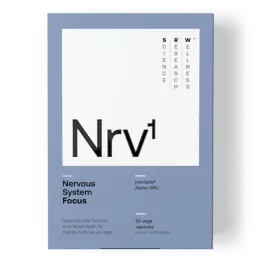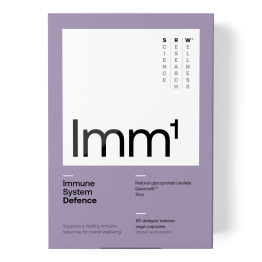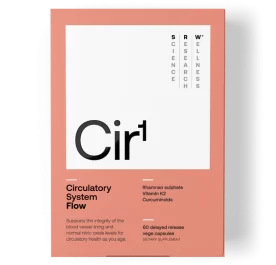How to Turn Stress into Constructive Action
Many people see stress as an unalloyed negative but in fact, stress serves a natural physiological purpose. It can help us solve problems and learn and grow from our experiences. Instead of trying to eliminate stress, we should try to understand it, optimise it, and capture the upsides.
It’s true that too much stress can have a negative effect on our physical and mental health but being relaxed and calm all the time can make a person a bit too comfortable. Under the right circumstances, a dose of stress can give you the boost you need to up your game.
No matter what sets it off, once that stress switch in our bodies is flipped on, it starts a flow of reactions. Three main stress hormones – epinephrine (also known as adrenaline), norepinephrine, and cortisol – are released and that activates our fight-or-flight response, which has been critical to survival throughout history.
What is stress?
Stress is a normal human reaction that happens to everyone. The human body is designed to experience stress and react to it. When you experience changes or challenges (stressors), your body produces physical and mental responses.
Your body reacts to stress by releasing hormones. That jolt makes your brain more alert, causes your muscles to tense, and increases your pulse. In the short term, these reactions are good because they can help you handle the situation that’s causing stress. It’s your body’s way of protecting itself.
It’s when we feel overwhelmed that stress can turn negative. Prolonged and badly managed stress can cause physical and emotional symptoms, which can lead to high blood pressure, unhealthy behaviours, burnout, depression and a raft of other issues.
An interesting fact is that stress is subjective and not measurable with tests. Only the person experiencing it can determine whether it’s there and how it feels. If you perceive stress as a source of worry and not as fleeting moments, it’s likely to create panic.
Once you understand the cause of your worry, it’s all about the mindset with which you decide to deal with it. The effects of stress on you depends on how you perceive it. When you learn to minimise the downsides of stress and start using it constructively, you’ll see that you don’t need to eliminate stress to live a happy and fulfilling life.
The type of stress that keeps life exciting
The term “stress” as it is currently used was coined by endocrinologist, Hans Selye in 1936, who defined it as “the non-specific response of the body to any demand for change”. His experiments shed pioneering light on how stress affects our health.
Selye states that our bodies are specifically designed to store energy and produce the required strength to deal with stress. His research also uncovered something that may surprise, or perhaps comfort you, if you’re stressed. Though we use the term almost exclusively in a negative sense, he knew that a little bit of stress keeps life exciting.
Getting out of our comfort zone is a good thing. The stress you feel when you compete in a game, go on a first date, or start a new job or project is called eustress. It’s positive stress that can benefit our overall health and wellbeing as it keeps us vital, helps us work toward goals, and makes us feel good about life.
How to get more positive stress in your life
If you’re looking for ways to make eustress a part of your every day, here are a few ideas to get you started:
- Learn something new every day. When you have knowledge, you have power and that will help you achieve so many things.
- Push yourself outside of your comfort zone at work. This may mean taking on a new responsibility or developing new skills.
- Set goals, both personal and professional, that are challenging and realistic. Track your progress to hold yourself accountable.
- Exercise! The benefits are too many to mention and even if you are busy and have a sedentary job, it’s never too late to start.
- Accept that you can’t control everything, and find ways to let go of your worries about situations you cannot change.
- Be kind to yourself. It sounds simple, but it’s not that easy if you’re feeling down or anxious. Be patient with yourself and trust in your strength.
Failure isn’t as bad as we think
Society seems to have a huge hang-up on failure, using it to define us, to stop us from trying again and living the life we want. However, this isn’t a one-shot-only world. There are always second chances, and sometimes third. Failure isn’t fun, but it happens to us all and brings an excellent opportunity to learn, reflect and regroup.
Author Napoleon Hill once said, “Every adversity, every failure, every heartache carries with it the seed of an equal or greater benefit.” When you get comfortable with failing, you’ll see how much fun it can be to challenge yourself.
Let go of the need for everything to be perfect, as perfectionism keeps us from trying new things. That means you could be missing out on all sorts of enjoyable experiences and potentially never discovering something you could be really good at , or something you’re terrible at but really enjoy.
How to find emotional calm
If you still feel stress and overwhelm too often, learn to practice mindfulness. It’s a way to become more aware of where you are and what you’re doing, without becoming overly reactive or overwhelmed by what’s going on around you. Mindfulness creates space for yourself – space to think, space to breathe, space between yourself and your reactions.
Find out how these 10 Buddhist mindfulness principles can help you cope.
There are plenty more ways to find your inner calm. Take a break in nature when you feel negative stress, as it has incredible health benefits and therapeutic power. Have a good laugh with friends, as laughter instantly reduces the level of stress hormones. Most importantly, learn to say “no”. It could be the reset you need to beat that sense of frustration, anxiety and restlessness.





